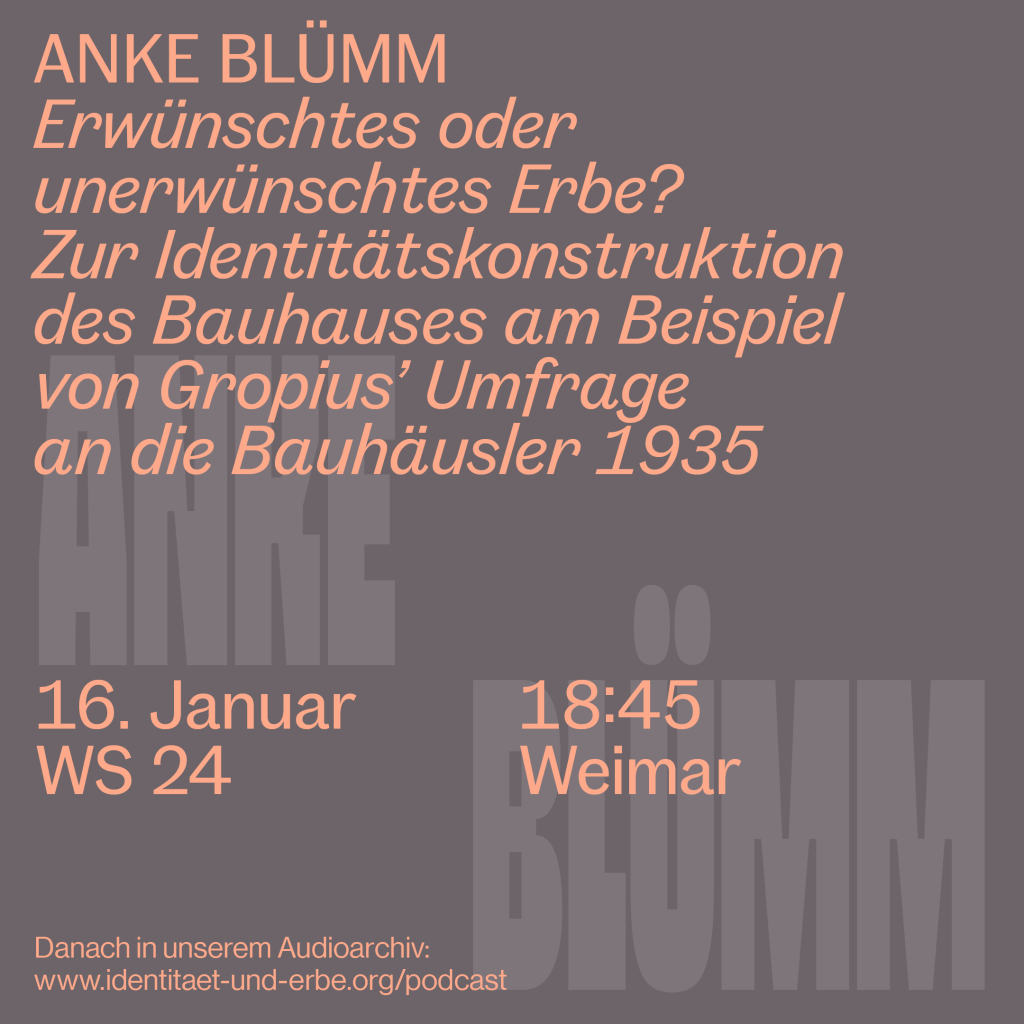Anke Blümm: Desired or Unwanted Heritage? On the Construction of Bauhaus Identity with the Example of the Survey ‘Umfrage an die Bauhäusler’ by Gropius in 1935 (GER)
Probably no projection surface of a desired heritage works as well as the “Bauhaus”, which can be perfectly used in the service of a positive identification precisely because of a generalised as well as indeterminate concept of modernity. But how did the formation of heritage take place and how did the protagonists of the Bauhaus deal with those issues that did not fit into the idealised image?
These questions are explained using a case study, namely the “Survey to the Bauhäusler”, which Gropius launched in 1935 from his exile in England. He requested works from the Bauhaus period that were to form the first basis for lectures and a following publication. But this did not happen. On the one hand, the response was poor, which was not least due to the difficult political situation in Nazi Germany, and on the other hand, the few photographs sent in showed a variety that could hardly be standardised.
How did Gropius nevertheless manage to shape the positive reception of the Bauhaus over the decades? What does this mean for our perception of the institution? On the basis of the 1935 survey, we will therefore consider how we manage to get a multi-layered picture of the school as a whole into view without disregarding its groundbreaking achievements.
Dr. Anke Blümm is a researcher and curator at the Bauhaus Museum of the Klassik Stiftung Weimar. After studying German and Art History in Heidelberg and Berlin, she completed her doctorate at the BTU Cottbus in 2013 with a thesis on the reception of modern architecture 1933-1945 in Germany („Entartete Baukunst”? Zum Umgang mit dem Neuen Bauen 1933-1945, Munich 2013, Theodor Fischer Prize 2014). From 2013-2016 she was scientific coordinator of the DFG project „Networks in Motion. Bauhaus Members and Their Ties in the 1930s and 1940s” (Cottbus/Erfurt). She is currently preparing an exhibition on “Bauhaus and National Socialism” (opening May 2024).
Bauhaus-Universität Weimar
Marienstraße 13 C, Hörsaal B
Beginn: 18.45 Uhr
https://meeting.uni-weimar.de/b/mat-e2m-qse-muk
